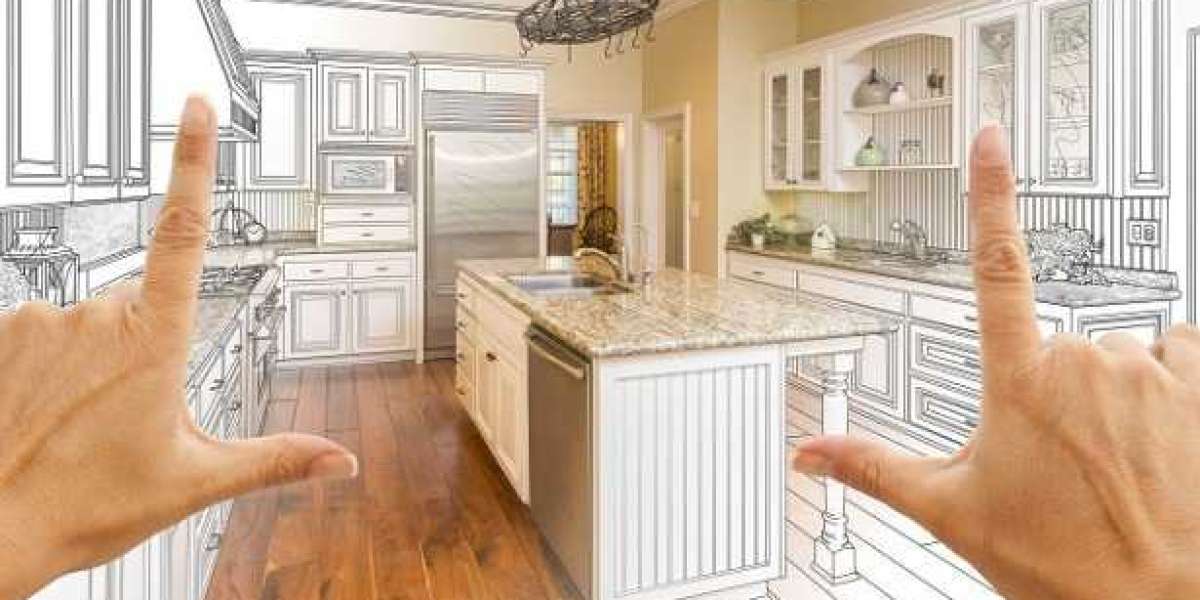Whether you're planning to increase your home's value, make your space more functional, or simply breathe new life into your surroundings, home renovations can be one of the most rewarding investments you make. In 2025, renovation trends are evolving quickly, combining functionality with sustainable and smart design.
In this comprehensive guide, we'll walk you through everything you need to know about renovations from planning and budgeting to choosing the right materials and avoiding common pitfalls.
Why Consider Home Renovations?
Home renovations go beyond aesthetics. Here are a few compelling reasons why homeowners choose to renovate:
Increase Property Value: Renovating your kitchen, bathroom, or outdoor space can significantly raise your home’s market value.
Improve Functionality: Whether it’s an open-concept kitchen or adding an extra bathroom, renovations can better suit your lifestyle.
Energy Efficiency: Upgrading insulation, windows, and HVAC systems can reduce energy costs and environmental impact.
Modernize Design: Keep up with current design trends to make your home feel fresh, modern, and inviting.
Adapt to Life Changes: Growing family? Working from home? Renovations can help your home evolve with your needs.
Popular Types of Home Renovations
Here are the most common renovation projects homeowners are tackling in 2025:
1. Kitchen Renovations
The kitchen remains the heart of the home. Modern kitchen renovations focus on:
Smart appliances
Sustainable materials like bamboo and recycled quartz
Open shelving and walk-in pantries
Large kitchen islands with seating
2. Bathroom Remodels
Bathrooms are being transformed into spa-like sanctuaries with:
Freestanding tubs
Walk-in showers with rainfall heads
Heated floors
Smart mirrors and lighting
3. Basement Finishing
Finishing a basement adds usable space for a home office, guest suite, or entertainment room. It also increases home value significantly.
4. Outdoor Living Spaces
With more people entertaining at home, outdoor renovations are booming:
Covered patios
Outdoor kitchens
Fire pits
Low-maintenance landscaping
5. Energy-Efficient Upgrades
Eco-conscious renovations include:
Solar panel installation
Upgraded insulation and windows
Energy Star appliances
Water-saving plumbing fixtures
How to Plan a Successful Renovation
Proper planning is essential for any successful home renovation project. Here's how to get started:
1. Define Your Goals
Ask yourself:
What do I want to achieve?
What problems am I solving?
How long do I plan to live in this home?
Your answers will guide the scope and scale of your renovation.
2. Set a Realistic Budget
Your renovation budget should include:
Material and labor costs
Design and architectural fees (if any)
Permits and inspection costs
A 10–20% buffer for unexpected expenses
3. Hire the Right Professionals
Choosing a licensed contractor, architect, or interior designer can make a huge difference. Always check references, read reviews, and confirm licensing.
4. Get the Necessary Permits
Certain renovations especially structural changes or electrical work require local permits. Skipping this step could lead to fines or problems during resale.
5. Set a Timeline
Outline your expected start and end dates, and build in some buffer time. Factor in the time needed for material ordering, permit approvals, and possible delays.
Trends Shaping Renovations in 2025
Keeping up with current renovation trends ensures your space looks fresh and feels modern. Key trends for 2025 include:
- Sustainable Materials
Eco-friendly options like recycled tiles, bamboo flooring, and VOC-free paint are popular for good reason.
- Biophilic Design
This trend brings nature indoors with plants, natural light, and earthy materials.
- Smart Home Integration
Smart thermostats, lighting, security, and appliances offer convenience and efficiency.
- Minimalist Aesthetics
Clean lines, open spaces, and multifunctional furniture dominate renovation design in 2025.
Common Renovation Mistakes to Avoid
Underestimating Costs: Always prepare for unexpected expenses.
Skipping the Planning Stage: Rushing into a project without clear goals leads to costly changes later.
Poor Communication: Regularly update and check in with your contractor or designer.
Choosing the Cheapest Option: Cheap materials may wear out faster and lead to more repairs.
Ignoring the Home’s Style: Ensure renovations complement your home’s original architecture and layout.
- Final Thoughts
Home renovations are a powerful way to improve your quality of life and boost your property’s value. Whether you're upgrading a single room or overhauling your entire home, careful planning, smart budgeting, and staying on top of trends are key to a successful project. Click Here








